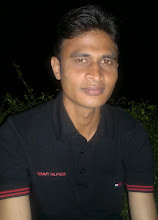Some 7.3m people accessed the net via their mobile phones, during the second and third quarters of 2008.
This is an increase of 25% compared to a growth of just 3% for the PC-based net audience - now more than 35m.
It also found that the mobile net audience was younger and searched for different things.

While Google remains the most popular site for those logging on via the desktop, on mobile internet BBC News is the most visited site, with nearly a quarter of mobile internet consumers using it.
Other popular sites include BBC Weather and Sky Sports.
"This highlights the advantage of mobile when it comes to immediacy: people often need fast, instant access to weather or sports news and mobile can obviously satisfy this," said Kent Ferguson, asenior analyst with Nielsen Online.
"The fact that weather, sports, news and e-mail sites make up the majority of leading mobile sites shows that mobile internet is mainly about functionality and need at the moment as opposed to the more entertainment and e-commerce-focused makeup of the leading PC-based sites," he added.













